16 expert tips for saving energy in the home: to stay warm for less this winter
From heating hacks to dealing with 'vampire devices', these expert-approved tips offer an easy way to stay warm while keeping bills down


With energy prices at an all-time high staying sufficiently warm this winter could prove costly. We've reached out to experts to share essential energy-saving tips for around the house to avoid huge bills.
The UK is currently in an energy crisis meaning many people, myself included, will be worrying about their energy usage when trying to keep the house warm this winter.
But no one should go cold when there are ways to make a home cosy and warm without overspending. Reducing energy use with savvy tips and tricks allows you to make small savings here and there, to save money on your bills.
16 expert tips to save energy in the home
I've personally installed floorboard insulation to reduce how much heat was being lost via gaps, which is just one of the many ways that can help.
To gain more I've spoken to heating specialists and energy experts who explain how you can save money and energy around the home without sacrificing your well-being during cold spells. floorboard insulation
1. Turn the heating down by one degree

Not to steal a well-known phrase, but every little really does help. Turning your thermostat down even just one degree is estimated to save up to £100 on heating bills, according to Stephen Day, a heating engineer from iHeat.co.uk.
While we don’t want to adjust it to leave us feeling cold, experts suggest that the thermostat is often set too high in the first instance.
Sign up to our free daily email for the latest royal and entertainment news, interesting opinion, expert advice on styling and beauty trends, and no-nonsense guides to the health and wellness questions you want answered.
"Reducing your thermostat setting even slightly can lead to significant energy savings, with the Energy Saving Trust reporting that lowering it by just one degree can reduce your heating bill by as much as 10%."
"Given the average 2-3 person home using around 11,500 kWh of gas per year, this could save you around £100 per year - a big saving for a second of work that you’ll likely never notice."
2. Bleed your radiators
Bleeding your radiators is an essential maintenance task to ensure maximum efficiency of the heating system. Any trapped air can affect heat distribution and make your heating work unnecessarily harder, at extra cost.
“A quick and easy job that will improve the efficiency of your radiators is bleeding them to release trapped air," says Jess Steele, heating and technology expert at online heating specialists BestHeating.
"Check for cold spots at the top of a radiator to allow hot water to circulate freely which can lower bills by around £130 a year.”
The quickest way to check if air has entered your heating system is to turn your heating on and feel your radiators. If a radiator is warm at the bottom but cold at the top this is generally a sign that air is present and it would benefit from being bled. You can pick up a recommended radiator key for £4.99 at Amazon.

Jess is BestHeating’s expert in heating technology. Her time is focused on understanding everything there is to know about radiators and boilers; from the heating hacks to avoid, the exact date to turn the heating back on and how to maximise radiators efficiency especially throughout winter.
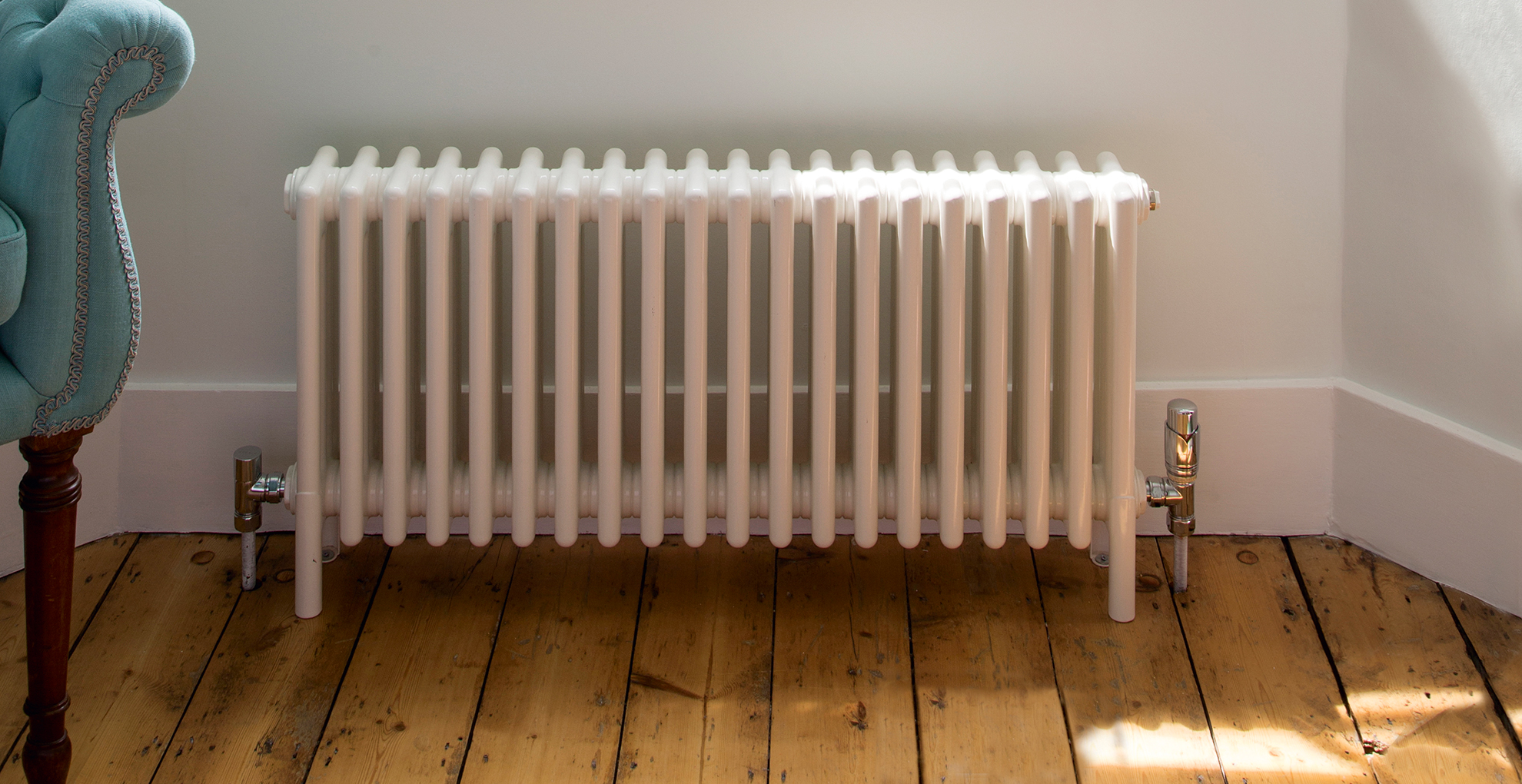
3. Install Thermostatic Radiator Valves
Gain more control over your heating and energy use by installing this simple device. "Installing Thermostatic Radiator Valves (TRVs) on your radiators can help you heat your home cheaply, allowing you to control the temperature of each room individually, usually with a dial labelled 0-6," says Stephen Day.
"These are attached to your radiator valve, meaning you can adjust the heat in each room of your house as and when needed. This works particularly well for rooms that are seldom used, allowing you to keep the room warm enough to fend off any dampness or condensation, but not eat into your heating bill."
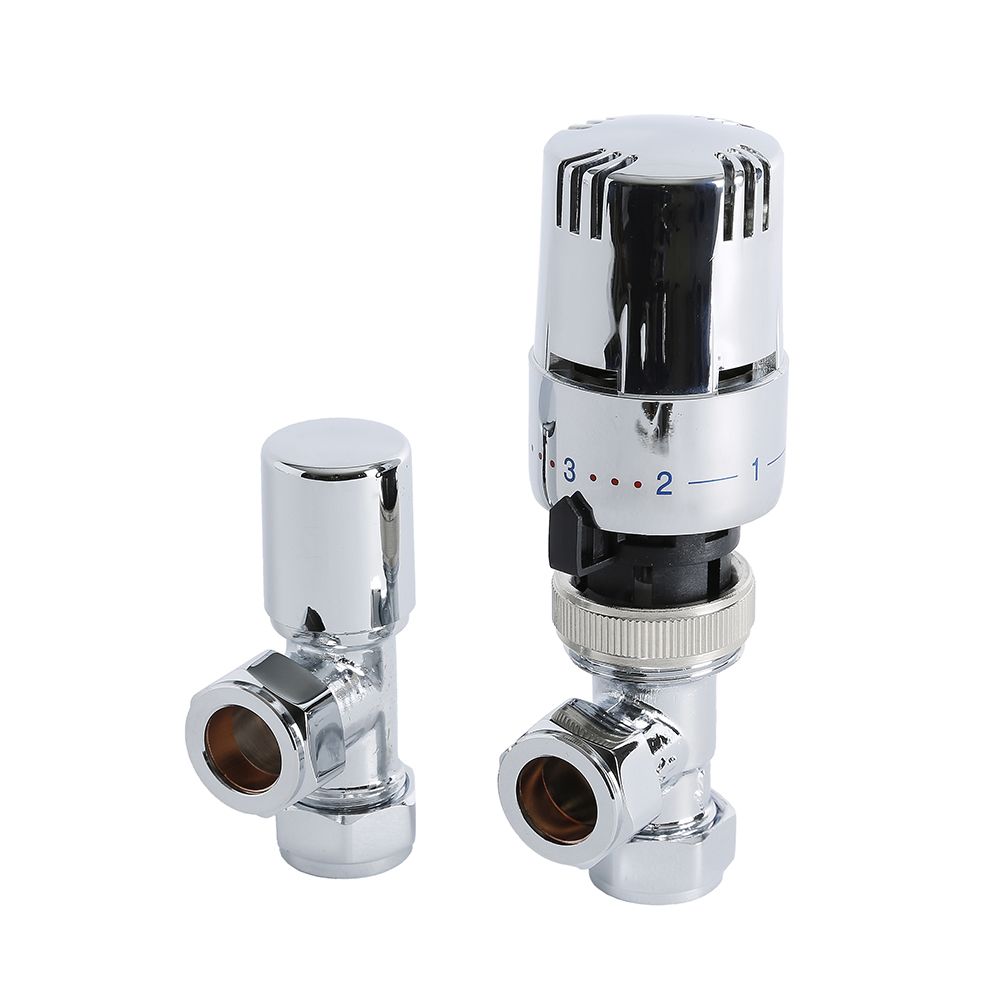
RRP: £28.95 | This pair of chrome-plated thermostatic angled radiator valves add a little touch of elegance to your radiators, an alternative to white plastic.
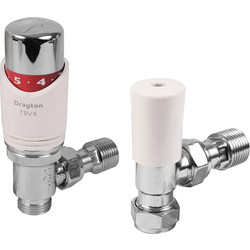
RRP: £25.98 | This classic 15mm thermostatic radiator valves have achieved the highest Class I rating for energy efficiency under the certification scheme of the European valve manufacturers association (TELL).
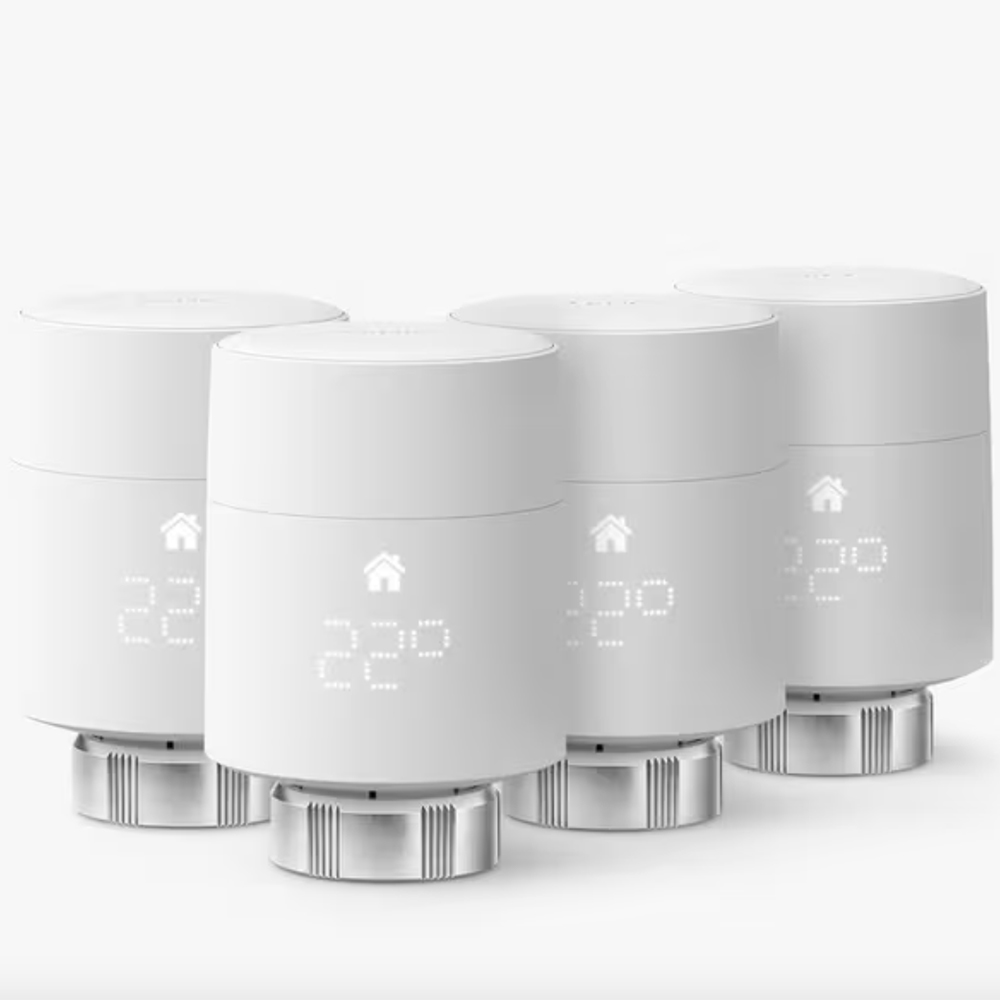
RRP: £199 for a set of 4 | Tado’s Smart Radiator Thermostats are used in place of conventional thermostatic radiator valves, letting you control your heating system remotely via an app.
4. Only heat the rooms you use
This sounds simple enough but heating the whole property unnecessarily is a common mistake. It's easy to forget to turn radiators off in rooms where the heat is less essential, say a spare room not in use or a home office over the weekend.
“Turn off radiators in rooms that are not in use as this will allow your boiler to work more efficiently, make the room you are in warm up faster, and can save up to £115 on heating if used daily," says Jess Steele.
"Just make sure not to turn radiators off in the room with the thermostat or it will cause the boiler to work harder and affect temperatures around the rest of the home.”
5. Move furniture
Avoid having any furniture obstructing against radiators as this blocks the flow of heat and means you won't benefit no matter how much you heat the room.
“Blocking radiators with appliances such as a sofa, armchair or table, will make a room feel colder and means a boiler has to work harder," Jess explains. "Leave at least 20cm to better distribute heat. Think about redesigning your rooms for winter to get the most out of heating, and if your radiators look ugly, then upgrade to designer radiators to improve the aesthetic.”
While this can sometimes be tricky to navigate, if you have to abide by small living room layout rules just to accommodate larger furniture pieces, it is always worth taking into consideration.
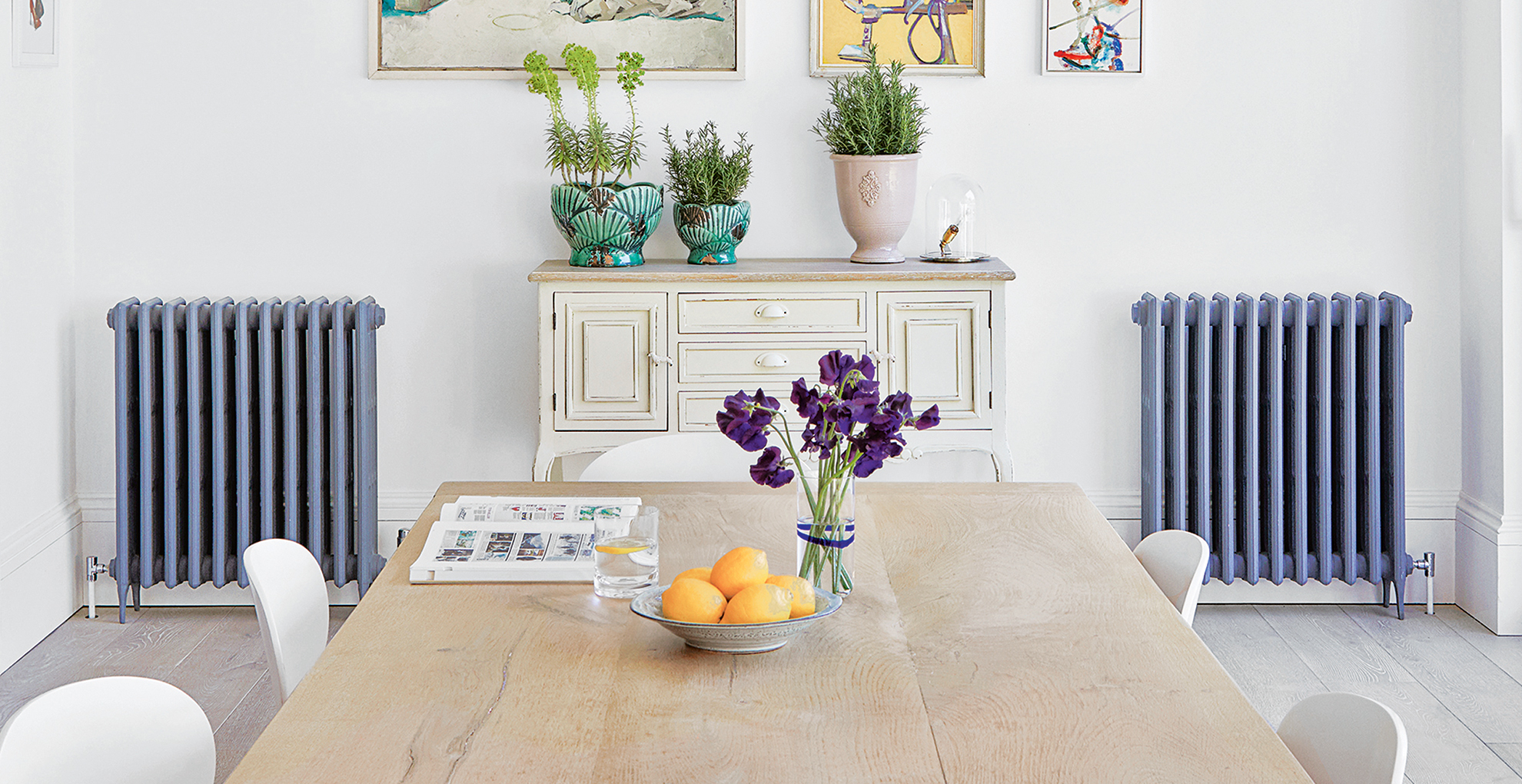
6. Swap to LED energy-efficient light bulbs
"Compared to during the summer months, light bulbs are in use for long periods during the winter," explains James Longley, managing director at Utility Bidder. This is why it makes perfect sense to switch to more energy-efficient bulbs.
"Most homes will have incandescent bulbs but they use a considerable amount more energy than LED bulbs do. On average, incandescent bulbs will use between 25 to 100 watts whereas LED bulbs use much less, at 2 to 18 watts. This simple change will go a long way in helping to reduce energy usage and won’t break the bank."
Changing the bulbs also creates the perfect opportunity to change the light colour temperature in every room to create an atmospheric layered lighting scheme.

James Longley is Managing Director and Founder of Utility Bidder, an award-winning business energy consultancy in the UK. He primarily manages supplier relations, as well as helping with new business opportunities. James has nearly two decades of experience under his belt in the energy sector, and has since expanded to launch the 'James Longley Group' in 2024 - where ambitious business owners can seek to maximise their growth with James' help.
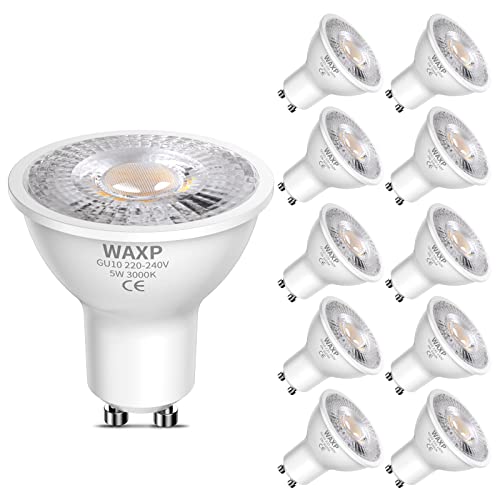
RRP: £14.59 | 10-pack of 3000k, 365lm, no flickering, energy-saving light bulbs. Equivalent 40-50w Gu10 Halogen Spotlight Bulbs. Non-dimmable.

RRP: £3.49 | Average life 15000 hours. The Warm white 2700K bulb features frosted glass for a diffused light effect ideal for soft layered lighting. Equivalent wattage: 5.5W=40W, 8W=60W, 11W=75W, 13W=100W. Non Dimmable

RRP: £8 | These 1.8W G9 wide beam bulbs offer 200 lumens and up to 15,000 hours of life. The small bulbs are ideal for illuminate any room with LED technology. Most suitable for smaller areas such as desk lamps and under cabinet lighting.
7. Switch off 'vampire devices'
Eliminate wasted energy by switching off 'vampire devices’ which unnecessarily drain energy. Having multiple appliances plugged in that are not in use but still on standby is a complete waste of energy.
"Devices in standby mode still consume energy, leading to surprising savings when switched off, " says Sean Slawson, a renewable energy surveyor and green energy specialist at Geo Green Power.
"Televisions, computers, and gaming consoles are major contributors to this ‘vampire’ energy. Brits could save an average of £147 per household each year just by unplugging devices or using smart power strips that cut power automatically.
Sean adds: "You can also check if your TV has energy-saving features like automatic shut-off or screen dimming to help lower your energy bill further.”

8. Install a water meter
You might not think to monitor water usage as a way of cutting down your energy consumption but it has a surprisingly great effect on how much you use.
“According to the Energy Saving Trust, hot water usage accounts for 25% of the energy consumption in your home," says Nancy Emery, home expert at Tap Warehouse. "As we see costs rise year on year, it's best to be on top of your water consumption to ensure you’re not over-spending unnecessarily."
“Installing a water meter can be a great way to measure your consumption and guarantee that you only pay for what you use. All new homes are typically fitted with one and you can install one for free on request. This could be a quick fix to help you regulate your water use and keep costs down."
9. Time your chores
You can save energy and money by being more strategic when carrying out your daily habits to keep the house clean and tidy because different times use cheaper tariffs.
"It is worth noting that if you are currently on a time-of-use tariff or off-peak tariff, the price of energy will be lower at times when the grid is under less pressure and demand is lowest, which tends to be between 10 pm-8 am," explains Les Roberts, business energy expert at Bionic.
Explaining why there is the best time to do laundry Les says: "Costs can sometimes be 50% lower during these hours so it can definitely be worth doing your laundry load overnight and taking advantage of these off-peak prices."
Les does caveat this by saying, "However, if you are on a flat rate tariff you'll be paying the same for your electricity at all points in the day so only running your appliances at night won't be any cheaper."
Also, be mindful of neighbours if you live in a shared space where the washing machine rumbling away might not be welcomed in the middle of the night.
10. Avoid leaving the heating on all day
Be mindful to switch the heating off as and when you can. “When it is only 2°C outside you will want the heating on all day, but if it’s around 10°C, target the morning and evening when the sun isn’t out to feel true effects," says Jess.
"Save money by ensuring your heating is on a timer so it is only used for a few hours per day. By cutting usage from 12 hours to 6, you could save up to £150.”
11. Programme your thermostat
To ensure you're not leaving the heating on all day long it's wise to set timers via your thermostat. "The heating will inevitably be switched on throughout the winter months, but it’s important to plan when you want the system to be in use depending on when you’re in the property," says James Longley.
"As well as programming your thermostat to coincide with when you will be in and out of the house, you may want to invest in a system which allows you to control the thermostat remotely. This will then mean the heating will only be on when you know you’ll be entering the property and you can switch it off when you are leaving."
My heating is currently set to come on for a few hours in the morning to make getting out of bed more bearable then it switches off for the hours of the day that I'm out and about. Thanks to a timer it automatically comes on just before I'm due home so that I benefit from the heat as I walk through the front door. What makes more of a welcoming hallway than a toasty warm reception?
12. Adjust your combi boiler
"Turn down your combi boiler flow temperature to 60°C," advises Nicholas Auckland from Trade Radiators. "When a combi boiler is installed, the flow temperature is likely set too high. A lower flow temperature means that less gas is needed to heat the hot water, therefore saving energy and money on your energy bills."
"Please note this is only suitable for combi boilers. If your boiler has a water tank, then this shouldn't be done."
If in any doubt about how to do this, guided by your user manual, it's best to ask a qualified boiler technician to do it for you.
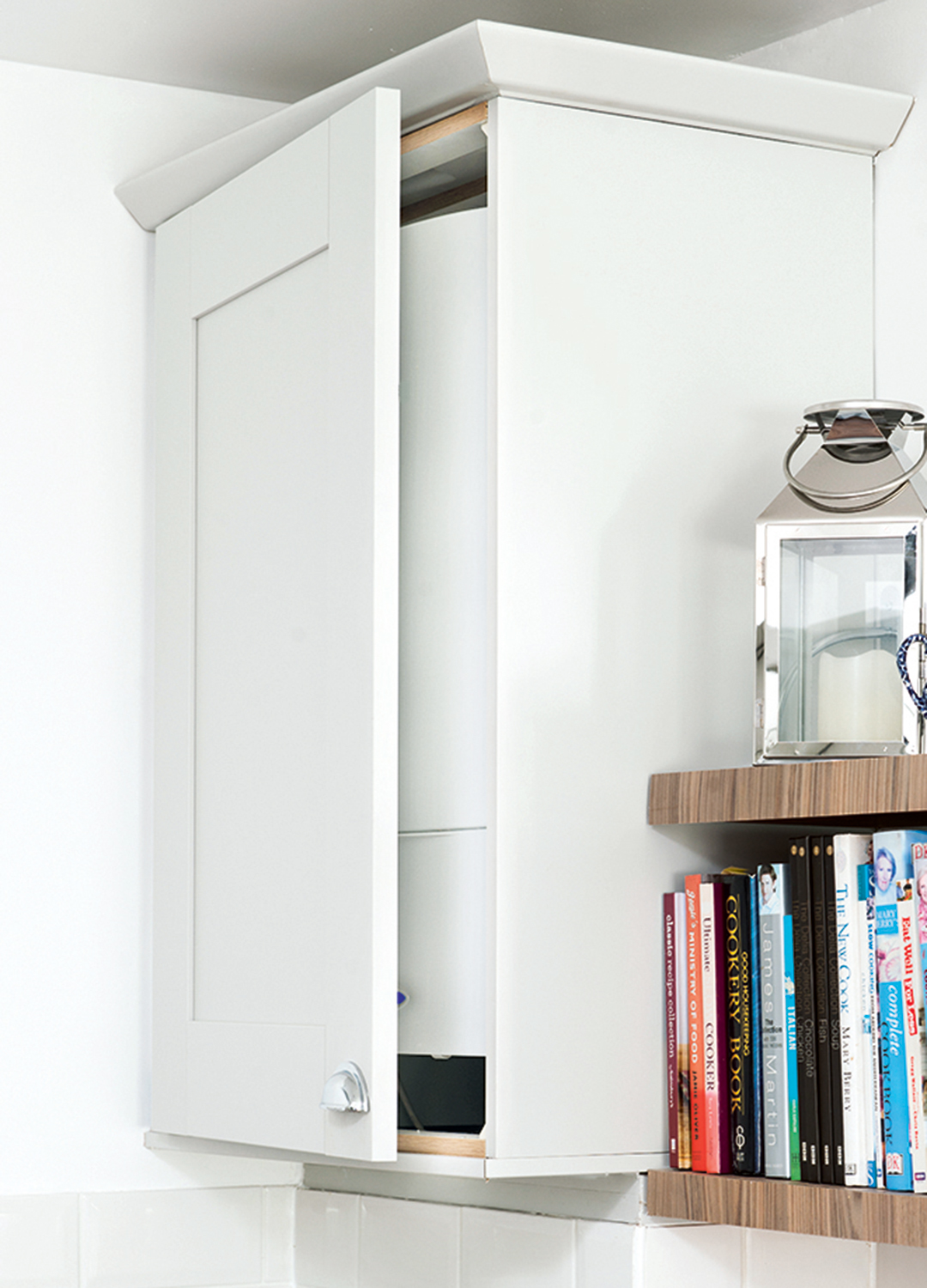
13. Upgrade old appliances
Old appliances can also become 'vampire appliances' due to the fact they drain more energy by design.
Les Roberts explains: “Generally speaking, older electrical appliances tend to be less energy efficient, so it might be worth upgrading your large appliances, like washing machines and dishwashers if you've had them for more than 10 years. More efficient models cut the KwH used significantly, so running costs will be much lower and over time, the money spent on the appliance will be made back in savings."
"The energy rating of large electrical devices will be printed on the energy label and ranks efficiency from G-A with A being the most efficient model. Make sure to take note of the energy label when you are next in the market for an appliance."
14. Use appliances more efficiently
While discussing appliances Les suggests: "It’s also a good idea to get into the habit of using your appliances in an efficient manner. Run your washing machine at a colder temperature, for a shorter time period and on a full load."
"Although each cycle will only cost around 50p (estimated figure for a 1 hour cycle on a 1400W machine), this number can be increased significantly if multiple half loads are done at a high temperature per week. 30 degrees is sufficient to wash your daily load so make sure to use your machine's eco setting."
15. Don't load laundry on radiators
There are far better ways to dry clothes indoors than hanging items on radiators, which is considered a laundry-drying mistake.
"Avoid placing wet clothes, towels and bed sheets on your radiators as these will block the heat from your radiators and prevent your rooms from heating up efficiently," explains Lee Melling, a financial wellbeing expert at Caba.
"This can also be more expensive as your radiators will have to work even harder to compensate for the heat loss caused by the wet washing. Drying clothes on radiators can also release excess moisture in the area, causing mould and mildew.
16. Use tin foil behind your radiators
This savvy tin foil hack operates on a simple principle of reflecting heat back into the room. Michael Wray, an insulation expert at National Insulation Supplies explains “Adding large pieces of foil, which can be purchased as little as £1, to the back of your radiator, will reflect your radiator's heat back into the room.”
Michael suggests this savvy hack can wipe 10-12% or £200 off your bills while keeping your home much toastier.
How does it work exactly? "When placed behind a radiator, the foil reflects heat back into the room instead of allowing it to escape through the wall. This effectively traps heat, making your home warmer and reducing the need for excessive heating."
"Place the foil strips behind the radiator, ensuring they are securely attached to the wall. Use adhesive tape to keep it in place," Michael suggests.
How can you make a home more energy efficient long-term?
To make your home truly energy efficient the best place to start is to fully insulate. "If you have cavity walls and your house is a pre-1990s build (it will normally be post-1930s to have cavities) then insulating here can give a strong payback – often 10-20% of your investment back each year," says Simon Bones, founder and CEO of Genous.
"You may be able to get it done under the Great British Insulation Scheme if you are an EPC D or worse and council tax band D or below, which significantly reduces the cost."
"If you have the budget, upgrading your boiler to a heat pump (normally an air-source model) and/or installing solar panels can generate savings. Heat pumps need to be specified carefully to ensure they work properly and save you money, so talk to an expert that is accredited by the government scheme, MCS."
"If you really want to future-proof your home, and look at all the options available, then you’ll need to get a thorough review of your property. Your Energy Performance Certificate (if you have one) can give some guidelines, but the costs and benefits tend not to be right, and the recommendations are incomplete and out-of-date. Better is to approach an expert who can give you simple tips tailored to your home for free, or they can get a full project plan together and deliver it."
Simon is also a published academic and Visiting Research Fellow in climate change science at the University of Bristol. Prior to Genous, Simon was co-founder and managing partner of international strategy consultancy Credo, where he focused on construction/property, infrastructure and energy services. He has personally also retrofitted multiple properties, installing insulation, performance glazing, smart controls, solar panels, heat pump and biomass heating systems (in different properties!), and EV charging upgrades.
He has Masters’ degrees from Oxford University and University of Bristol in Physics & Philosophy and Climate Change Science & Policy respectively.

Tamara is a highly experienced homes and interiors journalist with a career spanning over 22 years. Now the Lifestyle Editor of womanandhome.com, she previously spent 18 years working with the style teams at Country Homes & Interiors and Ideal Home. With these award-winning interior teams, she gained a wealth of knowledge and honed her skills and passion for styling and writing about every aspect of lifestyle and interiors.
A true homes and interiors expert, Tamara has been an ambassador for leading interior brands on multiple occasions, including appearing on Matalan’s The Show and presenting at top interior trend forecasting events such as the Autumn Fair and Spring Fair.